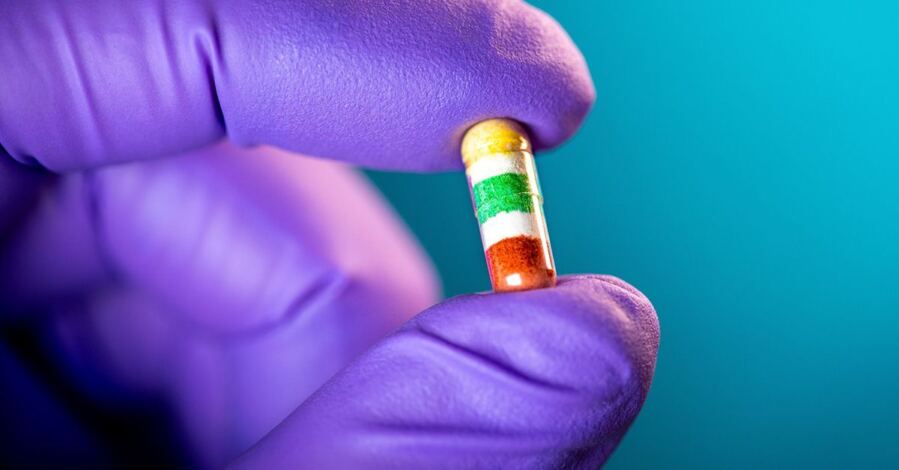Taking multiple medications on a complex schedule may soon become as simple as swallowing a single capsule in the morning. Engineers at the University of California San Diego have developed a capsule that contains multiple medications and releases them at precise, pre-programmed times throughout the day.
This innovation could transform life for millions who struggle with medication adherence, particularly those with conditions requiring strict timing between doses or patients managing multiple health conditions simultaneously.
“We want to simplify medication management with a single capsule that is smart enough to deliver the right drug at the right dose at the right time,” said study first author Amal Abbas, who recently earned her Ph.D. in chemical engineering at UC San Diego’s Jacobs School of Engineering.
The cleverly designed capsule houses medications in separate compartments, each programmed to release its contents at predetermined intervals. These compartments are separated by barriers made from a lactose and maltose matrix embedded with a pH-responsive polymer that shields medications from stomach acid but dissolves in more alkaline environments. By adjusting the polymer’s density, researchers can precisely control when each medication is released.
As a proof of concept, the team packed a capsule with three separate doses of levodopa, a Parkinson’s disease medication, each color-coded with food dye—yellow, green, and red—to track its release visually. The experiment successfully demonstrated the capsule could deliver all three doses in distinct phases.
“This timed release of multiple doses could really help patients with Parkinson’s disease,” Abbas explained. “If the drug level dips too low, patients will experience tremors and other motor symptoms. But if we can keep that level steady, we can also help keep a patient’s movement stable.”
One of the capsule’s most innovative features is the incorporation of microscopic magnesium particles that function as tiny stirrers. These “microrobots”—a technology pioneered by the research team—react with stomach acid to generate hydrogen bubbles, creating movement that helps dissolve medications requiring rapid uptake. The particles also temporarily neutralize stomach acid, creating a localized alkaline environment that helps initiate the release of subsequent medications.
“This innovative daily capsule approach ensures day-long full compliance towards improved patient outcomes,” said Joseph Wang, a professor in the Aiiso Yufeng Li Family Department of Chemical and Nano Engineering who supervised the research.
All materials used in the capsule are FDA-approved, which Abbas says “will help ensure an easy translation to market.” Recognizing the technology’s potential, she is launching a startup to accelerate its development and commercialization.
Beyond Parkinson’s disease, the capsule could revolutionize treatment for conditions like cardiovascular disease, which often requires complex regimens of multiple medications with different timing requirements. A patient could receive morning aspirin, afternoon beta blockers, and evening cholesterol medication—all from a single daily capsule.
The next steps include testing the capsule in living organisms, scaling up manufacturing, extending its capabilities beyond a single day, and exploring targeted drug delivery within specific sections of the digestive tract—advances that could fundamentally transform how we manage chronic diseases and complex medication regimens.
If our reporting has informed or inspired you, please consider making a donation. Every contribution, no matter the size, empowers us to continue delivering accurate, engaging, and trustworthy science and medical news. Independent journalism requires time, effort, and resources—your support ensures we can keep uncovering the stories that matter most to you.
Join us in making knowledge accessible and impactful. Thank you for standing with us!

